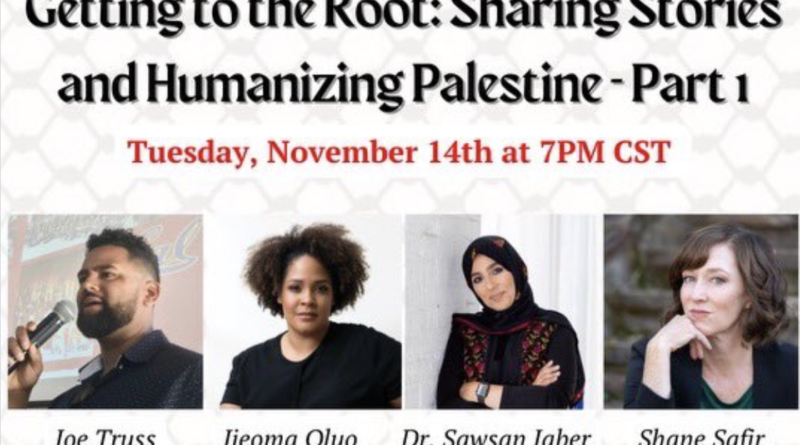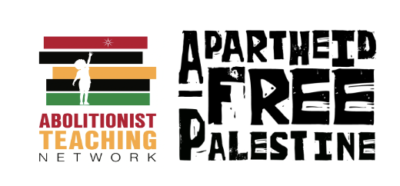Talking About Palestine in Schools and Beyond
We Must Create Space to Talk
It’s imperative that we make space to talk about what is going on in Palestine, in our homes, in our schools, and in our lives. I know what you’re thinking. What if…There is such a culture of fear here in the US of asking questions, and saying anythinig contrary to the dominant narrative. The forces of power are strong. There was push back to critiquing all power structure: slavery, patriarchy, equal pay for women, equal rights for LGBTIAQ+ Folks, Trans Rights, etc. etc. Shit, we can even freely talk about Black History in general, and at all in some states/counties. But that reminds us that we need to talk. We need to think. We need to act.
In order to this, we must be prepared to hold space. The following is a few things to consider as you engage in conversations. See considerations below.
What’s At Stake If We Don’t Center Palestinian Narratives
- We open ourselves to the dominant narrative that demonizes and subjugates Palestinians
- Palestinian people become erased and it’s much easier to dehumanize Palestinians
- This maintains the current dehumanizing state in Gaza, the West Bank, and Occupied Israel
- It’s also easier to dehumanize other groups because we have justified the dehumanization of one group
- We are dehumanized and we lose part of our humanity
- We lost our freedom, because none of us are free until all of us are free
Considerations for Holding Space to Talk about Palestine
- Start with mindfulness, grounding, and framing
-
meditation, breathing, poetry
-
remind participants why we are here
-
-
Share and unpack key terminology
-
power
-
privilege
-
oppression
-
settler colonialism
-
genocide
-
cultural sustainability
-
perseverance
-
critical thinking
-
bias
-
- Study and discuss history of the region
- Balfour Declaration
- Nakba in 1948
-
Create for processing in writing, pair shares, discussion, or circle sharing (use some of the following prompts)
-
How are you feeling about what is going on?
-
What do you know? What have you heard?
-
How is it affecting you?
-
Why might this matter to you?
-
What connections can you make to your life or other stories you have heard?
-
How can you connect this to other social movements?
-
- Choose the appropriate medium, arrangement, and tone
- Sit in a circle
- gather desks in a circle
- clear the space of distractions
- Offer guidelines for engaging in conversation
-
Center the most liberation marginalized and oppressed
-
Consider your impact and your intent
-
Be comfortable with your discomfort, especially if it challenges your privilege
-
Be solution oriented as it pertains to justice
-
-
Space for personal connections and relevance
-
Facilitators that are prepared to probe, redirect, and reset the group if needed
-
Be prepared to set the tone, establish guidelines
-
Be prepared to interrupt or redirect harmful comments
-
-
Space for dreaming about possibility
-
Instead of merely focusing on the problem, imagine what justice and love looks like
-
- Space for action planning if the group decides
-
letter writing
-
contacting representatives
-
non-violent political action
-


